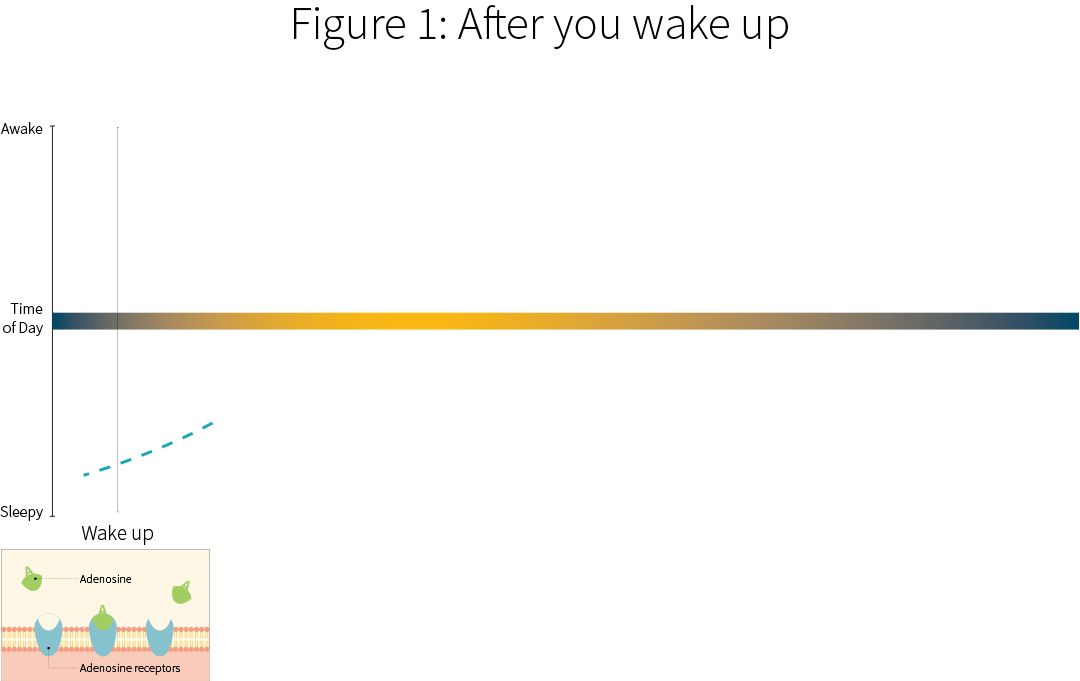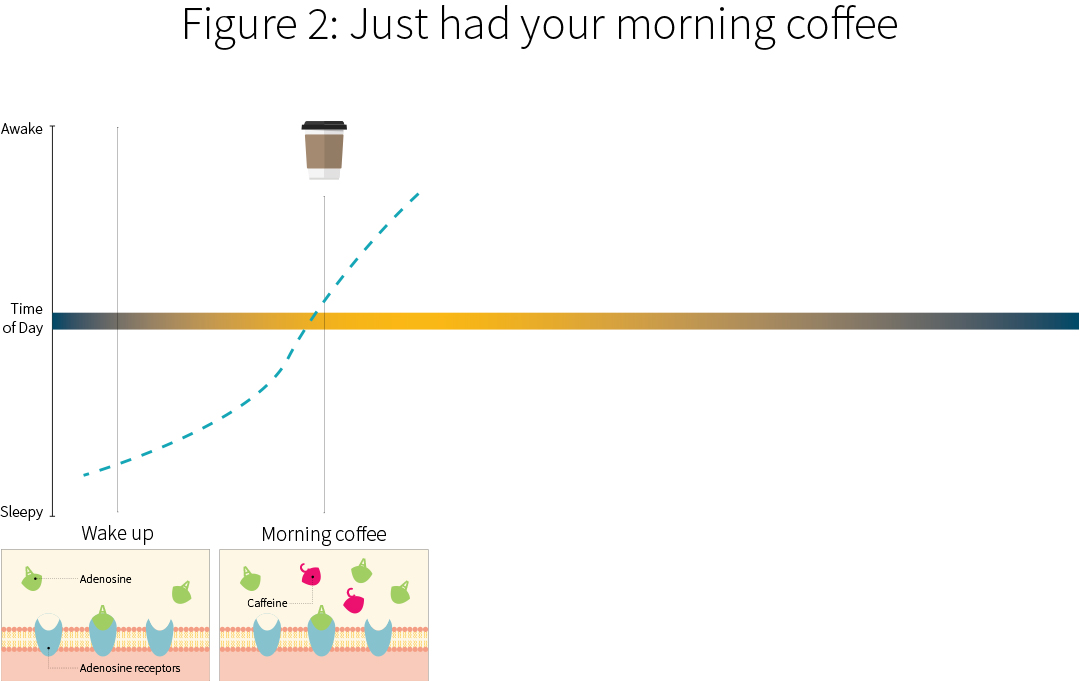How does caffeine work in your brain?
Last Updated:October 25, 2023
Caffeine is the most widely consumed psychoactive drug in the world, largely due to its mood-enhancing and stimulatory effects.
Despite widespread consumption, few people are actually aware of how caffeine works in the body.
We thought you might be interested in learning exactly how caffeine works in your body after you ingest it and it enters the brain.
But first: how adenosine makes you feel sleepy
The key player here is adenosine.
If you remember your high school biology, think of the lock-and-key model.
Adenosine is a key that opens up a variety of locks, with the locks actually being receptors in the brain.
Once adenosine (the key) locks into a certain receptor (the lock) in the brain, it has a unique effect on the brain.
There are a host of different receptors in your brain, so different ones have different effects. The one we’re interested in is the A1 receptor. Once adenosine locks with the A1 receptor, it promotes muscle relaxation and sleepiness, which is why people get tired as the day progresses.
Furthermore, adenosine can bind to the A2A receptor. When it binds, this interferes with the release of mood-improving neurotransmitters, such as dopamine.
Adenosine itself is produced primarily from physical work and intensive brain use. Thus, over the course of the day, your body accumulates adenosine.
If only there was something that could get in the way of adenosine from locking into the A1 receptor...
Adenosine is one of the best-known sleep-regulating molecules. Located in your central nervous system, it helps get you sleepy as the day winds down, among other effects.
What caffeine does in your brain
Before caffeine
When you first wake up, your body has metabolized away the adenosine molecules. You’re a bit groggy, but you’re waking up.

Ingesting Caffeine
Most people initially drink caffeine in the form of a beverage. It’s absorbed in the small intestines within an hour, and becomes available throughout the blood and most parts of the body, including your brain.
As it starts entering your brain, it starts competing with adenosine.

Peak Concentration
Blood concentrations of caffeine tend to peak within two hours, which also means that brain concentrations of caffeine are at their peaks. The caffeine in your brain is competing with adenosine and preventing it from binding to A1 receptors. This is what gives you a jolt of wakefulness.
To be precise, the caffeine doesn’t actually lock in with the A1 receptor. It’s more like something that gets in the way and occupies the lock, rather than actually unlocking it.
It similarly gets in the way of the A2A receptor, which can help promote the release of dopamine and glutamate (and make you feel good after you drink coffee)!

Decreasing caffeine
Eventually, caffeine molecules will unbind from the adenosine receptors (as all molecules generally do).
Most of caffeine is metabolized through the CYP1A1/2 enzymes into various substances such as araxanthine, theobromine, and theophylline.
The half-life (the amount of time it takes for the concentration of a substance to be halved) of caffeine in the body ranges from three to ten hours depending on the amount of CYP1A1 in the body, which varies from individual to individual.

Feeling sleepy again
By early evening, most of the caffeine from your morning cup of coffee has metabolized. There are significantly fewer caffeine molecules occupying the A1 receptors, so adenosine starts binding to them.
This starts promoting muscle relaxation and sleepiness, and that’s why you start feeling sleepy.

When you go to sleep and your body starts recovering, the adenosine molecules are metabolized. This is why sleep is so important - one of the issues with a lack of sleep is the increase in adenosine molecules. This then takes us back to the "Before Caffeine" step.
Of course, you can always attempt to drink a larger dose of caffeine at one sitting, or drink caffeine multiple times during the day to keep sleepiness at bay. But that’s not really a sustainable strategy.
Caffeine allows people to remain awake by competing with a molecule that promotes sleepiness called adenosine. Caffeine has a similar shape to adenosine and prevents it from binding to its receptors.
For more information, check out our in-depth caffeine page.
